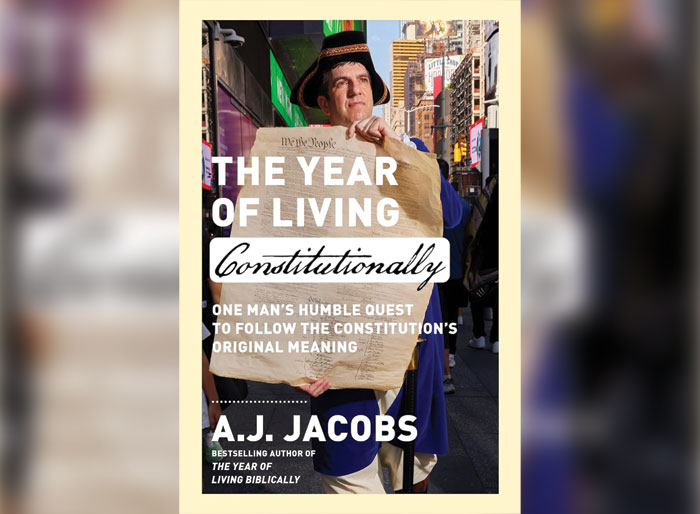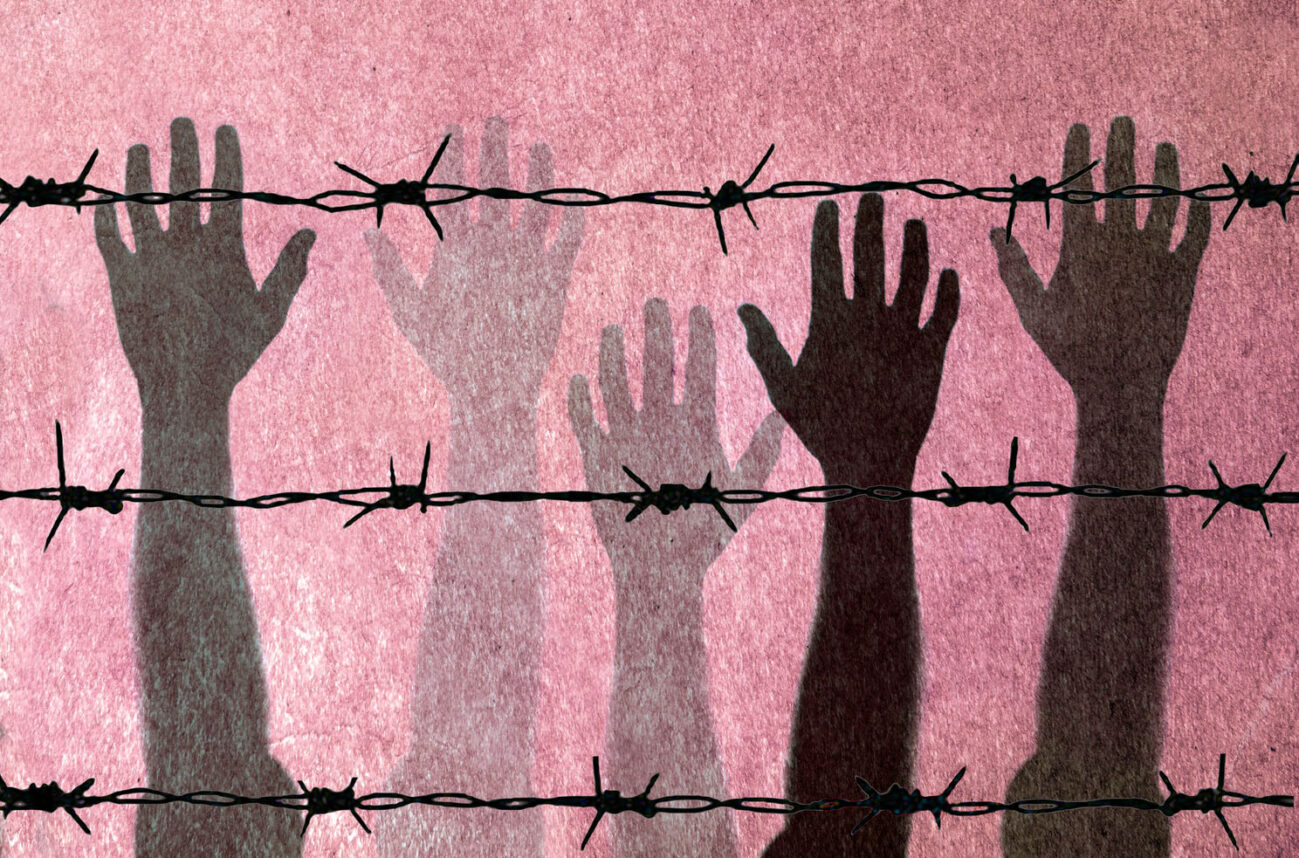 Something disturbs me about the way Howard Jacobson, the Man Booker Prize winning author of “The Finkler Question,” navigates the rocky road of his fluctuating Jewish identity. The British Jewish author, who lives in London, sometimes reminds me of the comedian Jon Stewart. Both men seem wedded to a false sense of self that projects out into the world an aura of fake Jewish cool. Almost 70 now, Jacobson has written many well-received comic novels that have intelligently and provocatively focused on love, sex, women, friendship and all matters Jewish. Jacobson does not shy away from his Jewish heritage. Like Jon Stewart, he embraces it, nervously sending out mixed signals of fear and shame alongside pride and defiance. He is always first to make fun of himself before you do. Jacobson’s characters are usually intellectually gifted secular Jewish men lost in the space between the ancient world of their beleaguered parents and the persistent displeasure of their non-Jewish wives. Reading the determinedly feisty Jacobson can be deliciously captivating. His frenzied prose is engaging and funny, but he often seems to stop himself from going beyond the comfortable terrain of high-level schtick. It feels as if he is afraid of what he might find. This restraint seems purposeful and embodies many Jewish men of a certain age who have come to associate vulnerability with weakness, or what they might call a loser’s game.
Something disturbs me about the way Howard Jacobson, the Man Booker Prize winning author of “The Finkler Question,” navigates the rocky road of his fluctuating Jewish identity. The British Jewish author, who lives in London, sometimes reminds me of the comedian Jon Stewart. Both men seem wedded to a false sense of self that projects out into the world an aura of fake Jewish cool. Almost 70 now, Jacobson has written many well-received comic novels that have intelligently and provocatively focused on love, sex, women, friendship and all matters Jewish. Jacobson does not shy away from his Jewish heritage. Like Jon Stewart, he embraces it, nervously sending out mixed signals of fear and shame alongside pride and defiance. He is always first to make fun of himself before you do. Jacobson’s characters are usually intellectually gifted secular Jewish men lost in the space between the ancient world of their beleaguered parents and the persistent displeasure of their non-Jewish wives. Reading the determinedly feisty Jacobson can be deliciously captivating. His frenzied prose is engaging and funny, but he often seems to stop himself from going beyond the comfortable terrain of high-level schtick. It feels as if he is afraid of what he might find. This restraint seems purposeful and embodies many Jewish men of a certain age who have come to associate vulnerability with weakness, or what they might call a loser’s game.
Jacobson started writing late; he was almost 40. As a young man, he studied at Cambridge under the esteemed literary critic F.R. Leavis. He found the experience traumatic. He writes, “I felt a fool the whole time I was there. But I felt a fraud, too. Not because my disposition took me in a non-Leavisite direction—I can’t claim to have been a Talmudic scholar in my native Manchester, but Talmudic criticism is in the blood of most Jews, and “Yes, but” is the principle on which the great Talmudic exegetes built their monumental edifice of commentary and counter-commentary.” In other words, although Jacobson revered Leavis and his sophisticated theories about critical reading and writing, they had little to do with the reality he had experienced growing up the precocious son of working-class parents. The world of his family was missing from Leavis’ curriculum, and Jacobson recognized he was out of place. He was never going to be able to write a proper British literary aristocratic novel, except perhaps as farce. He needed to embrace the world of his father, a man he describes as “a raucous market-man-cum-children’s magician, later a black-cab driver, a man who loved mirth, threw himself into good works and never read a book in his life.” Once Jacobson freed himself from trying to be someone he could never be, he began to write feverishly about all sorts of Jewish preoccupations.
His novels have a glaring Jewish intensity. For example, in “The Finkler Question,” he writes about a 49-year-old Gentile named Julian Treslove who decides suddenly after being mugged that he possibly might be Jewish. He certainly wants to be. His two best friends are Jewish and he has always been fascinated by their unique take on things thinking “They always had something you didn’t, some verbal or theological reserve they could draw on, that would leave you stumped for a response….It was as though they spoke a secret language. The secret language of the Jews. In another of his fine novels, “Kalooki Nights,” Max Glickman attempts to put into words what it means to be Jewish stating “So we are an immoderate, overemphatic people, much given to exaggeration-so what? I call it giving value for money myself. You prick us so we bleed profusely.” Jacobson’s Jewish characters are smart, funny, defensive, verbally gifted, and confrontational; desirous of acceptance and yet wary of it; much like Jacobson himself.
In his new work “Zoo Time” (Bloomsbury: $26.00), 43-year-old Jewish Guy Ableman is an edgy writer living in London who is distraught by the state of the publishing world and fearful that reading is taking a permanent nosedive. His publisher has just committed suicide and his agent is nowhere to be found. He finds the new technological inventions like iPads and Kindle and apps disturbing interruptions that have simply made daily life more unpleasant and rude. He is still turned on by his beautiful wife, Vanessa, but equally attracted to her well-kept and high-breasted mother, Poppy. His marriage is stressful and argumentative, and he finds himself exhausted by having to continually deflect his wife’s anger. She wants to write, too, and is jealous of his success and blames him for her own failures. His obsession with his wife and her mother often overwhelms him.
Jacobson is exquisitely skilled at writing about women, even though most of it is charged with a palpable hostility. He finds the tension between the sexes exhilarating, and he notices things about women other men never see. For example, here is Jacobson’s Guy Ableman remembering the first time he saw his tempestuous wife when she walked into his family’s fine clothing store: “To this day I can remember everything Vanessa was wearing — the high black-patent shoes, minimal so that you go to see the arches and her instep; the paper-fine leather coat belted so tight that it did what I thought only a pencil skirt could do, which was to make a still point of tension of her behind, a tremulousness, as though some law of gravity or protuberance were being defied, the V of its fur collar like the vagina of a giantess; and pushed back a little from her red hair a Zhivago hat — Anna Karenina was who I saw (who else?) — the air from our fan heater winnowing its fine hairs, as though a Russian bear had stepped in out of the wind.”
“Zoo Time” is entertaining, witty, fast-paced, and clever. Classic Jacobson. But it is missing a certain emotional poignancy that was evident in “The Finkler Question,” which more penetratingly probed the chasm that exists between all Jews and Gentiles.
Jacobson is married now to his third wife, a Jewish woman whom he insists is a keeper. He has said that he regrets that he wasn’t a better father to his only son, the child of his first brief marriage. He is a tireless writer, and some readers may be familiar with him from his thought-provoking columns in the Independent where he muses on matters as diverse as Israel’s military policies to Kate Middleton’s recent exposure in France. He is a strong advocate for Zionism and has written many heartfelt columns about his hostility towards portions of the new left who claim they can be anti-Zionist without being anti-Semitic, a position Jacobson scoffs at. He has recently said that he has yet to write his memoir about his own angst-ridden childhood and is not certain if he is going to do so, since he is not sure he wants to reconnect with so much pain. One hopes does make the attempt and gives himself permission to remove the comic mask. That, too, is a form of Jewish liberation.






















 More news and opinions than at a Shabbat dinner, right in your inbox.
More news and opinions than at a Shabbat dinner, right in your inbox.